LVC Asia Women: United in solidarity to learn about shared struggles against capitalism, neoliberalism, patriarchy, and colonialism
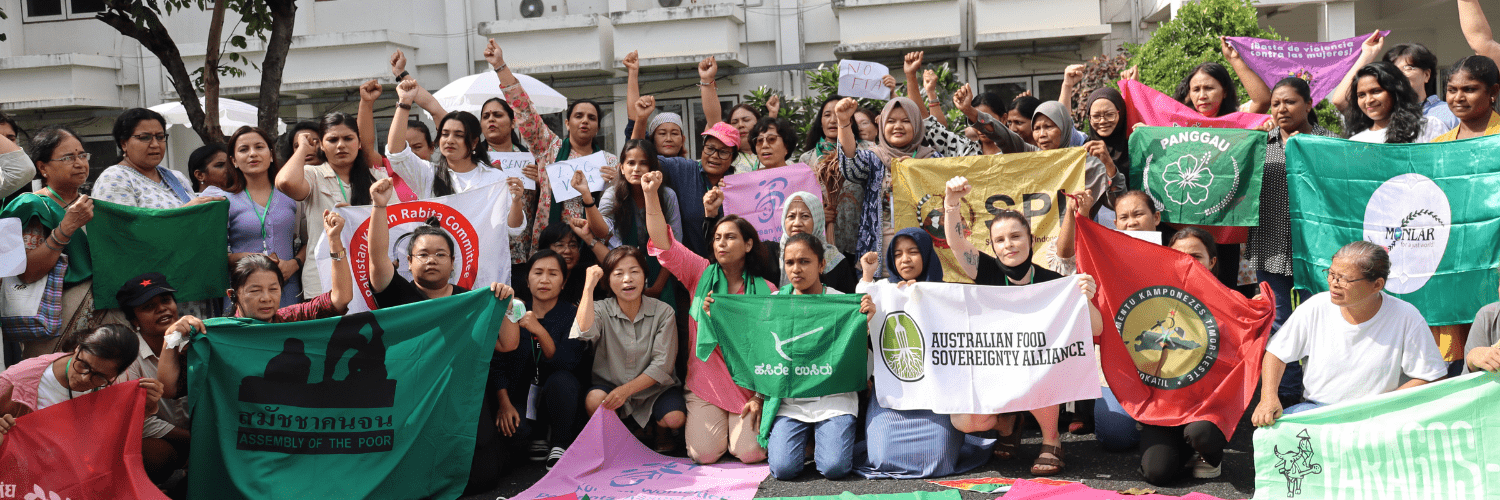
Declaration of LVC Asia Women’s Political School
From September 20th to 25th, 2024, following the 30th year of “globalizing the struggle and hope” of peasants worldwide, women from 14 Asian countries gathered in Bangkok, Thailand, for the first La Via Campesina (LVC) Asia Women’s Political School.
Over five days, we united in solidarity to learn about our shared struggles against capitalism, neoliberalism, patriarchy, and colonialism—interconnected forces that uniquely impact peasant women across our countries. We delved into the roots of injustices faced by peasant women, including discrimination, false solutions, violence, microfinance, land grabbing, class and caste systems, Free Trade Agreements (FTAs), and climate change. We discovered that a core issue impacting women in Asia is the corporate capture of native seed systems which rightfully belong to women.
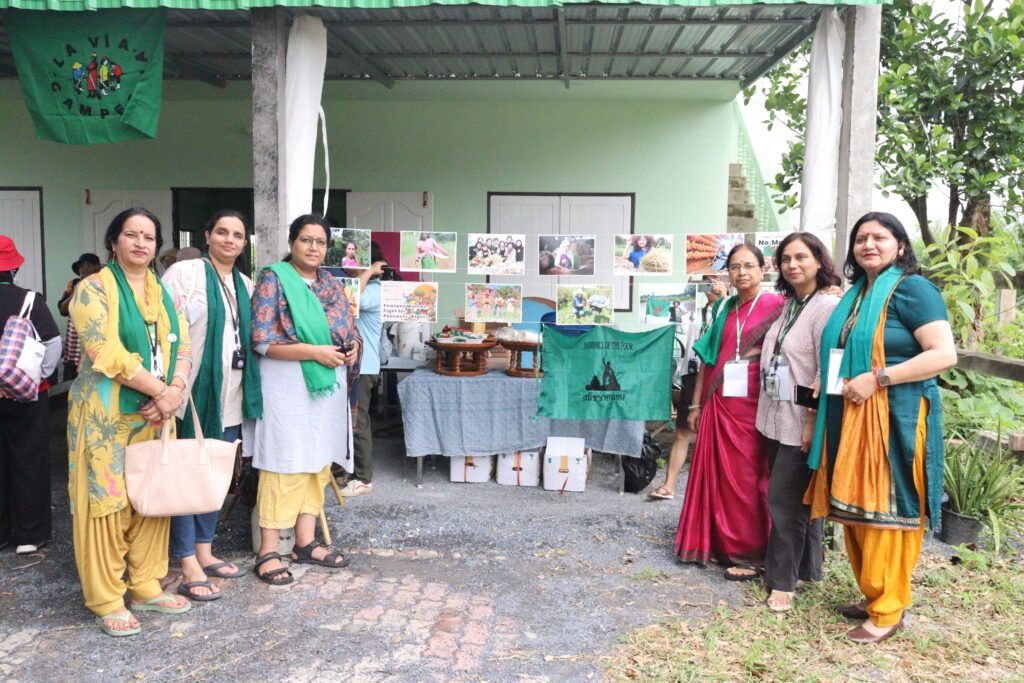
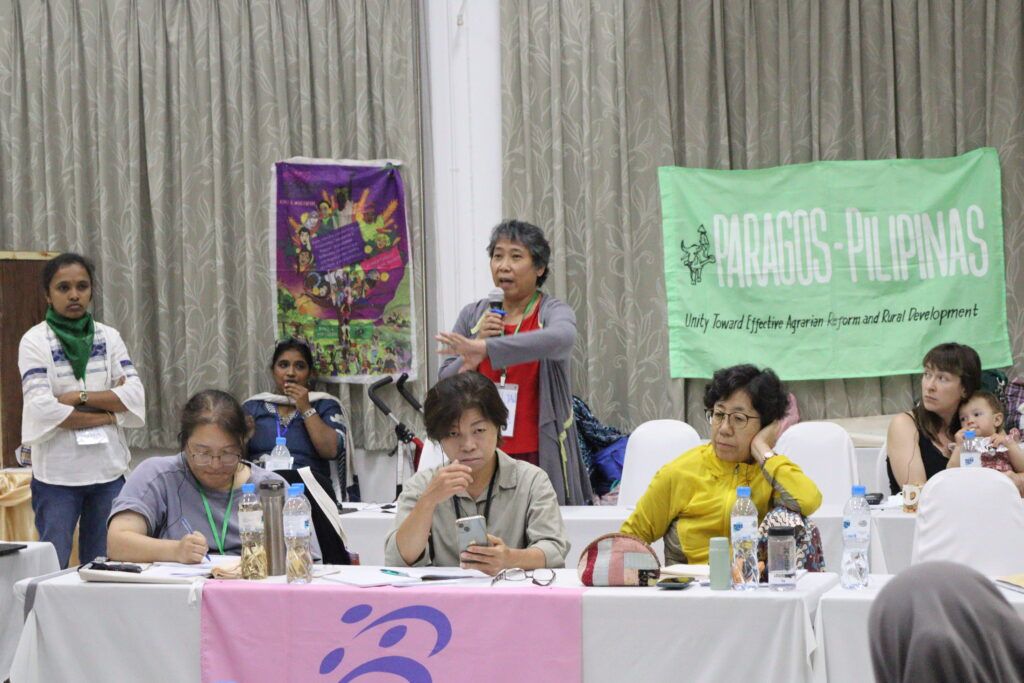
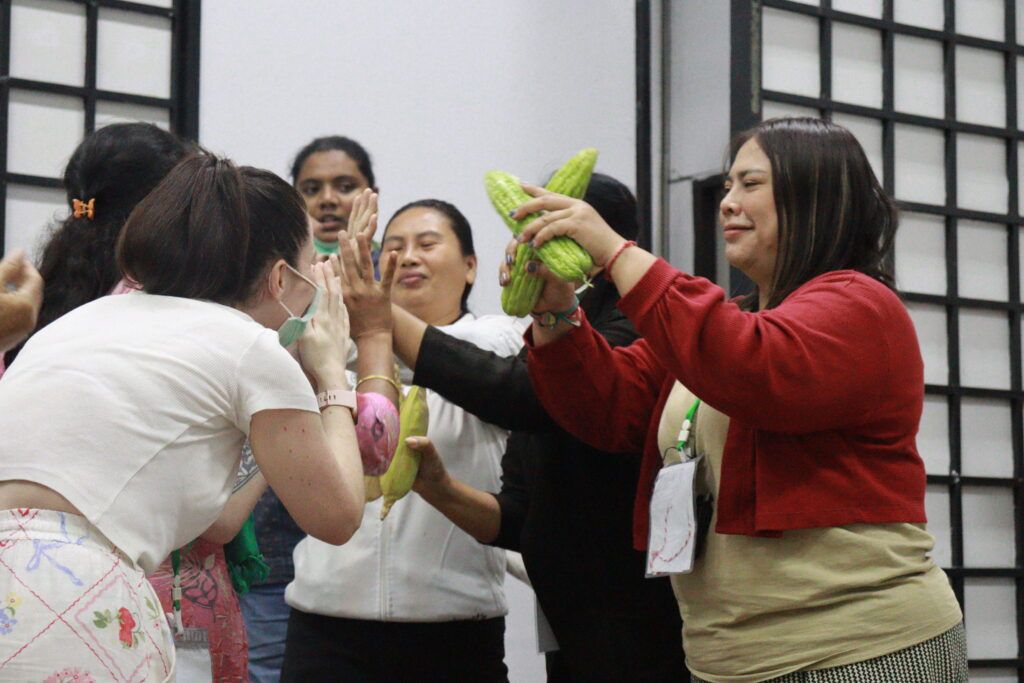
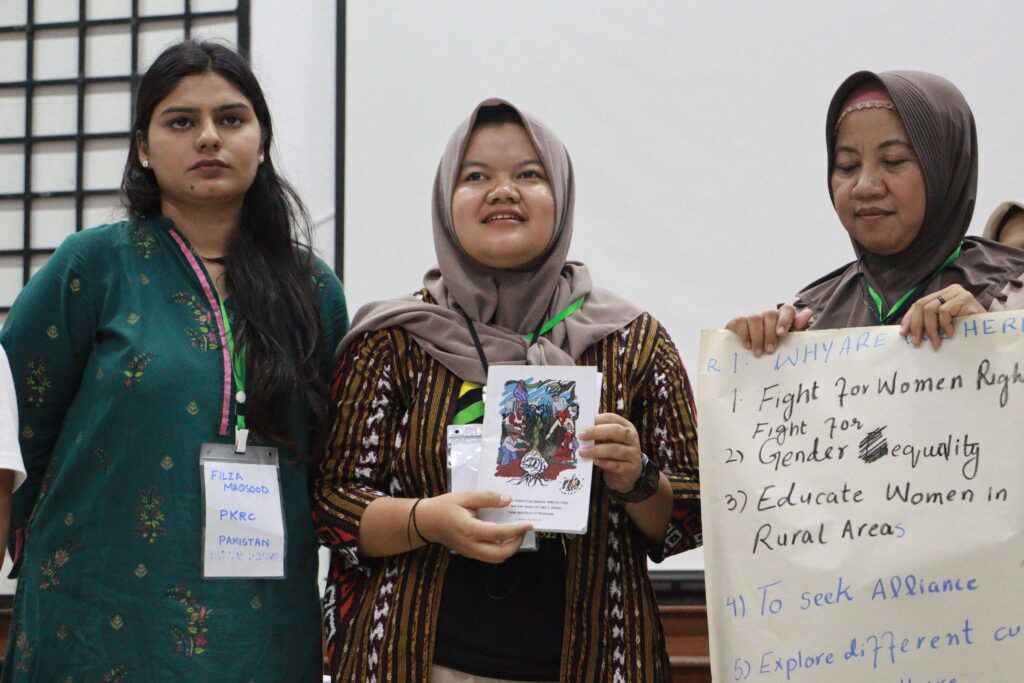
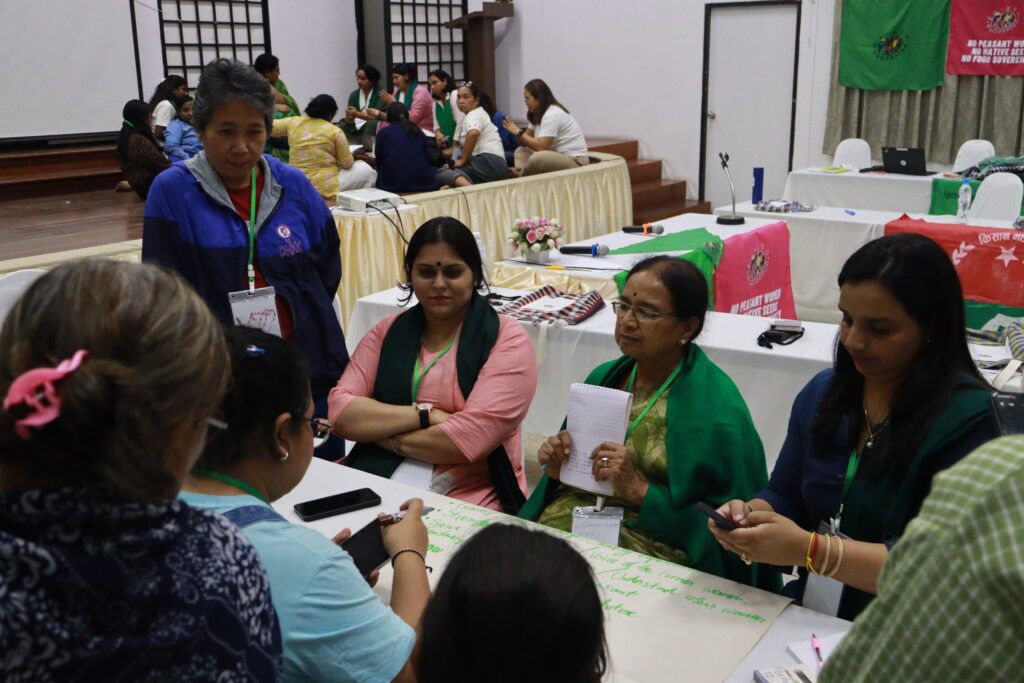
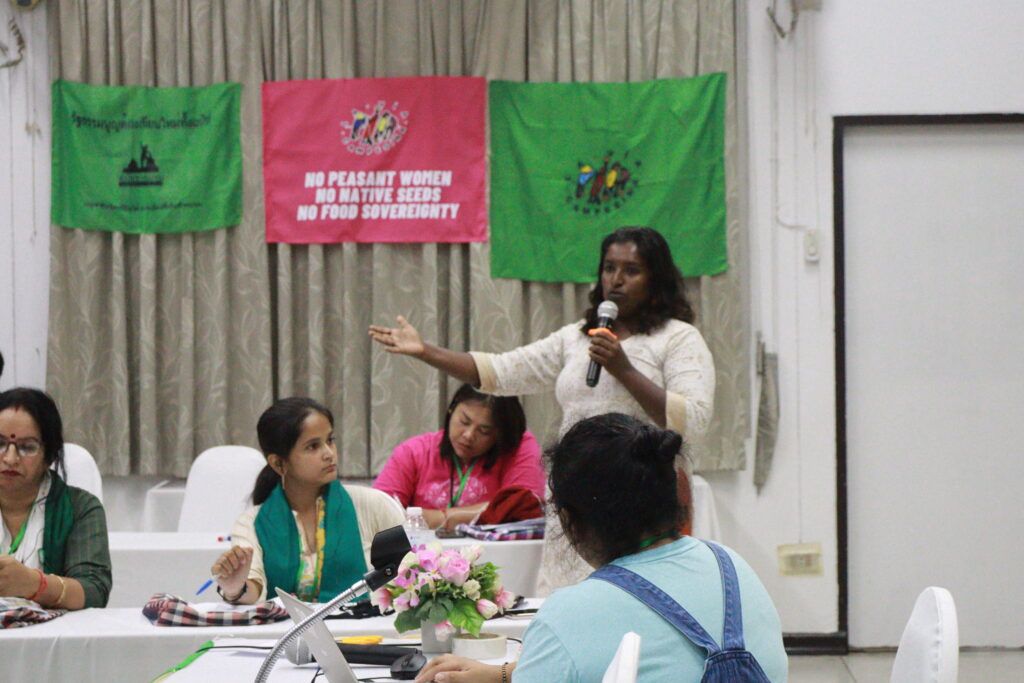
As daughters of Mother Earth, we believe that saving and sharing seed is an intrinsic part of women’s role in the food system, and in many ways women are like seeds; we are nourished by the earth so that we ourselves can bloom and give birth to new life. We are the carers; we nurture and care for the land; we feed our families and care for the next generation. And yet, we are often taken for granted.
As part of the school, we explored the nature and power of land reform, agroecology and food sovereignty as interdependent pathways to our liberation and freedom from capitalism, neoliberalism, patriarchy, colonialism and class/caste systems. We were empowered by past and present knowledge of popular and peasant feminism as a crucial tool to address the ongoing violence and discrimination faced by women under these systems of oppression.
We organised a masterclass on the UN Declaration on the Rights of Peasants and Other People Working in Rural Areas (UNDROP) and learned about its potential to guide governments and social movements in recognizing the rights of peasants and addressing historical injustices against us as peasant women. UNDROP is the culmination of over 20 years of struggle, but our work is far from over. We now need to keep working on better strategies to spread awareness about the Declaration as well as strategies to ensure our governments are implementing the rights of peasant women through national legislation.
Through the use of political pedagogies like mistica, theatre of the oppressed, and base groups, coupled with continuous invitations for participation and self-expression, we created a safe space for fertile, mutual learning. This included a sensitive yet important discussion on diversity. We agreed and asserted that we must not only recognize the rights of women and gender-diverse people but also stand in solidarity with our LGBTQIA+ siblings who face ongoing violence, oppression, and discrimination.
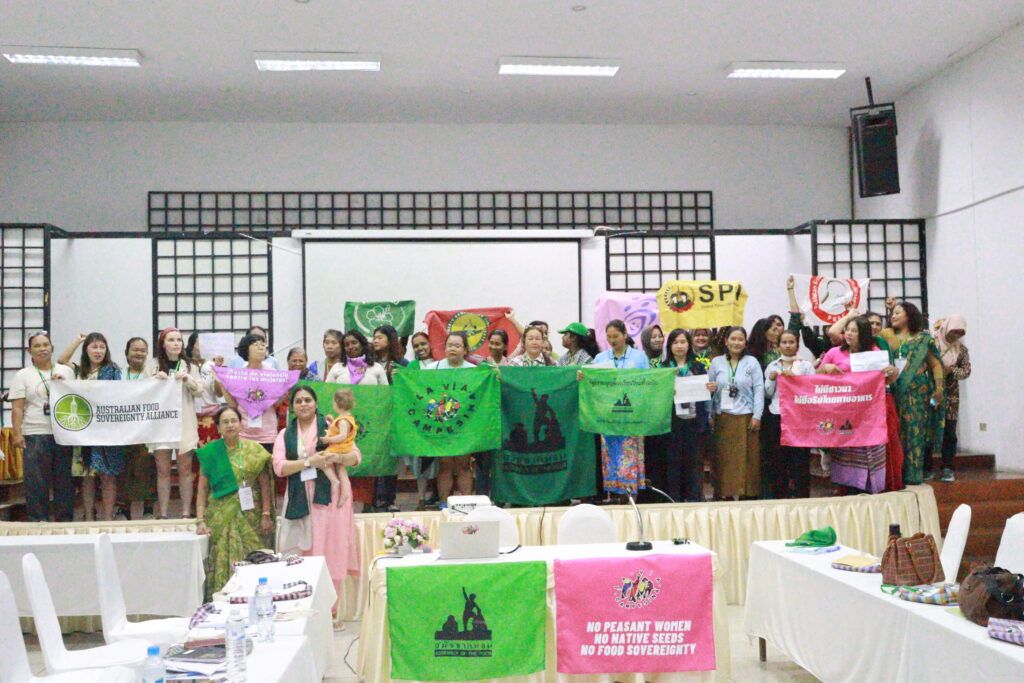
As we fight for the liberation of peasant women across Asia, we also acknowledge the struggles of our sisters in Palestine, Afghanistan, Congo, Lebanon, Myanmar, Mali, and every country where women are subjected to physical and sexual violence during wars fueled by religious and cultural extremism under systems of colonialism, patriarchy, and capitalism.
With certainty, we reaffirm our fight:
- Anti-capitalist, anti-patriarchal, anti-racist, and anti-caste struggle.
- To keep popular and peasant feminism, as well as food sovereignty the centre of our struggle, we continue to organise and build resistance against all the violence and discrimination that persists in the world towards women, gender diversity, the entire working class, and our people;
- The subtle ways in which patriarchy impacts us as women, sometimes masked as freedom to decide on how to manage our households and fields, but in reality forcing women to unconsciously take on all the responsibilities and mental load. Women also need to rest and nourish themselves so in turn, they can better nourish the land, their families and communities.
- To create safe spaces for political educational pedagogies and mutual learning to support our journeys of liberation.
- Beyond the challenges posed by religious and cultural extremism and fundamentalism across the Asia-Pacific region, we must continue to fight for diversity within our movement, particularly recognizing the rights of LGBTQIA+ individuals;
- Against the criminalisation and imprisonment of peasant women who are fighting to retain their rights to land, their bodies and their seeds;
With collective strength and conviction, we commit to continue the fight:
- For an anti-patriarchal, anti-capitalist, anti-neoliberal, anti-neocolonial, anti-racist and anti-caste society
- For a Popular Agrarian Reform that guarantees land for women and join land titles with life partners for women in South Asia;
- For public policies that support the rights of women and gender diverse people;
- For political participation without exclusions of rural women and gender diverse people, from ensuring our right to vote to being invited to play an active role in policy development that impacts rural women and gender diverse people;
- For agroecological production and for peasant women to be the custodians and caretakers of native and peasant seeds;
- For the empowerment of peasant women to build localised food systems and alternative international trade framework based on solidarity economies.
This post is also available in Français.
